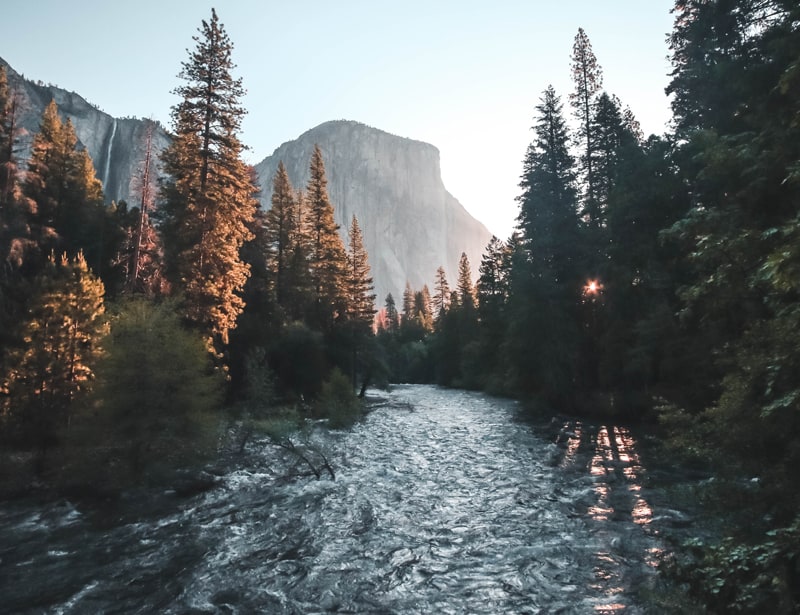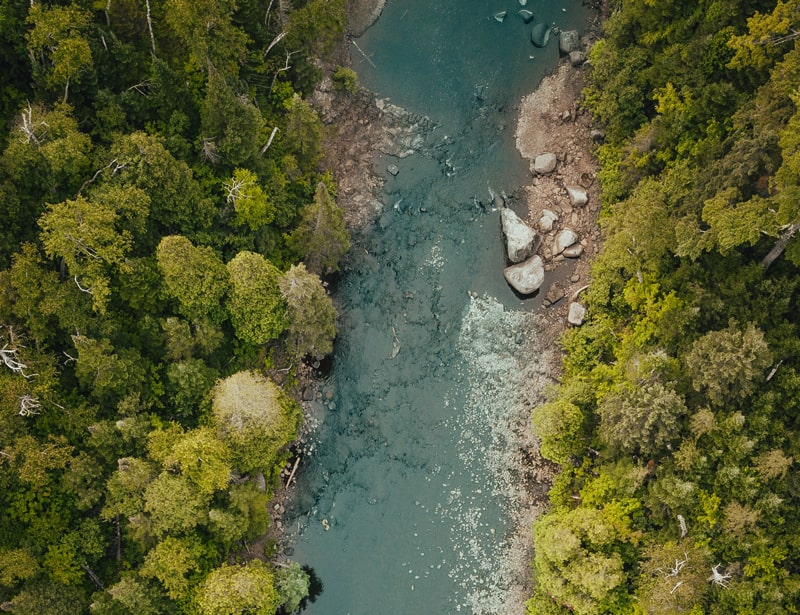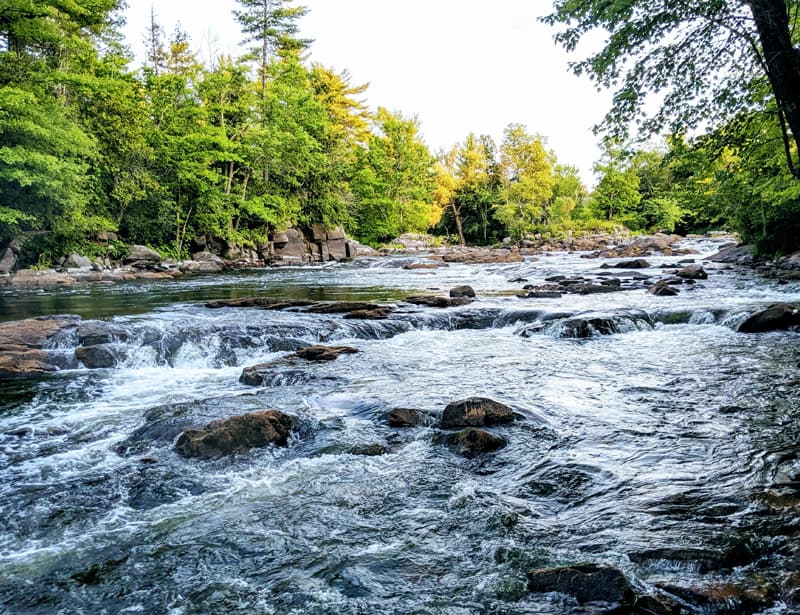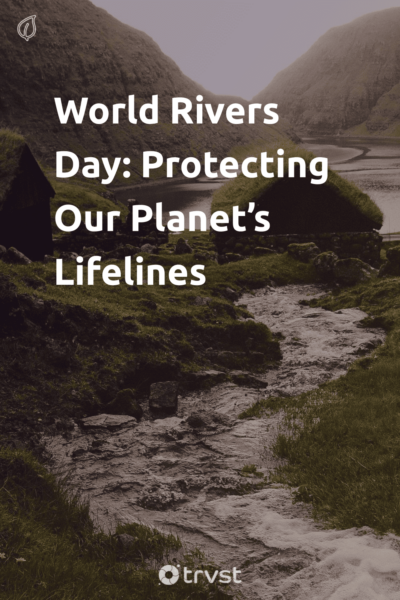World Rivers Day: Protecting Our Planet’s Lifelines
People worldwide celebrate World Rivers Day on the fourth Sunday of September. It acknowledges the importance of the world's waterways and how they are interconnected with various aspects of our lives.
World Rivers Day draws attention to rivers' crucial role in global ecosystems. This day also highlights the threats these bodies of water face, including pollution and climate change.
Read on to learn more about how to preserve these vital water bodies.
Featured in: September - Awareness Months, Days & Observances.
History and Background of World Rivers Day

The United Nations launched its Water for Life Decade campaign in 2005. However, the fly-fishing enthusiast Mark Angelo founded World Rivers Day.
He began his campaign to preserve these water resources in the 1980s, which led to the creation of BC Rivers Day in British Columbia, a stepping stone toward this global initiative.
The event aims to increase public awareness of the importance of rivers, promote improved stewardship, and highlight their numerous values.
Over the years, World Rivers Day has grown in popularity and impact, drawing millions of participants from over 100 countries. The event has expanded to regions such as Africa and Asia, and the number of participants has increased tremendously.
World Rivers Day has influenced river management policies and encouraged sustainable practices among communities, governments, and organizations.
The Cause and Its Challenges

Rivers transport life-sustaining materials across the world. Unfortunately, rivers in virtually every country face pollution, unregulated water extraction, and the destruction of their habitats.
Its pollution has resulted in declining water quality. Many communities that rely on these rivers for their livelihoods face enormous difficulties.
The World Wildlife Fund estimates that the declining health of waterways directly affects approximately 2 billion people.
Additionally, human-made structures such as dams disrupt the natural rhythm and affect aquatic life and human habitats.
The World Bank also estimates that this river degradation could cause an annual loss of $260 billion.
5 Facts on the Importance of Rivers
- Several of the world's earliest civilizations, such as the Egyptian, Mesopotamian, Indus Valley, and Yellow River, developed around rivers, primarily due to the rich, fertile land and reliable water supply.
- Like animals, rivers can be endangered, too. In America, the Colorado River through the Grand Canyon, a crucial water source for 40 million people, is currently in peril due to extensive overuse, prolonged drought, and the escalating effects of climate change.
- 97% of Earth's water is salty, with just 3% being fresh. Of this, 69% is trapped in glaciers and ice caps, 30% is groundwater, and a mere 1% counts as surface water. This surface water includes 87% in lakes, 11% in swamps, and 2% in rivers.
- There are over 165,000 rivers worldwide. Unfortunately, research reported that 90% of the ocean plastics came from 10 major rivers1. Eight are in Asia, and two are in Africa.
- Wetlands, which include rivers, are biodiversity hotspots, home or breeding grounds to a staggering 40% of all species.
Various Efforts and Initiatives

The UNEP launched the Clean Seas campaign in 2017, focusing on limiting marine plastic litter and emphasizing the link between ecosystems. Moreover, UNEP's campaign raises awareness of the many values of rivers and how river health can affect oceans.
On the other hand, the World Wildlife Fund (WWF) has prioritized river preservation with initiatives like Living Amazon and Free-Flowing Rivers. They aim to promote active involvement in sustainable water use that balances human needs with environmental well-being.
Furthermore, the Center for Environmental Literacy developed the River of Words project to help younger generations appreciate rivers. The project fosters a deep-seated respect for these life-giving waterways through poetry and art.
Finally, the European River Restoration Centre (ERRC) pools the best practices across Europe. It applies them to river restoration projects, finding success on the River Rhine and the Danube.
How to Get Involved and Support World Rivers Day
- Join local events organized by environmental groups or authorities, such as fish enhancement projects and river clean-ups.
- On the other hand, consider organizing your own if no clean-up events are happening near you or support recycling societies.
- Connect with others with the same passion to give back to the environment and inspire the rest to do the same.
- Donate to organizations like the World Wide Fund for Nature (WWF) and the River Network as they work toward river preservation.
- Meanwhile, you can contact local and national representatives to promote the cause.
- Social media is also an excellent means to create awareness about World Rivers Day on a global scale. Share images, facts, river quotes, and personal stories to spark curiosity about most rivers and promote action toward river conservation.
Conclusion
World Rivers Day shows us the importance of these vital waterways, which transport water and play a crucial role in nurturing biodiversity. Today, our rivers face pollution, indiscriminate damming, and climate change. Indeed, this event reminds us to pay attention to the urgent needs of our threatened rivers.
Let’s unite and conserve our rivers, not just for ourselves but for future generations.
World Rivers Day FAQs
It is a global event held on September 26th to raise awareness about the link between a clean and healthy environment and human well-being.
Rivers provide fresh water, support diverse ecosystems, facilitate transportation, and are a source of recreation and culture.
Rivers face pollution from industrial and agricultural activities, dam construction, habitat destruction, and over-extraction of water. These threats could deplete river ecosystems and reduce biodiversity.
Reduce water consumption, practice responsible waste disposal, support local river clean-up initiatives, and advocate for sustainable river management policies.
This event promotes awareness, appreciation, and sustainable management of rivers worldwide. It encourages individuals, communities, and organizations to protect and restore rivers.
| 1 |
Schmidt, C., Krauth, T., & Wagner, S. (2017). Export of Plastic Debris by Rivers into the Sea. Environmental Science & Technology, 51(21), 12246–12253. |
Mike is a degree-qualified researcher and writer passionate about increasing global awareness about climate change and encouraging people to act collectively in resolving these issues.
Fact Checked By:
Isabela Sedano, BEng.

